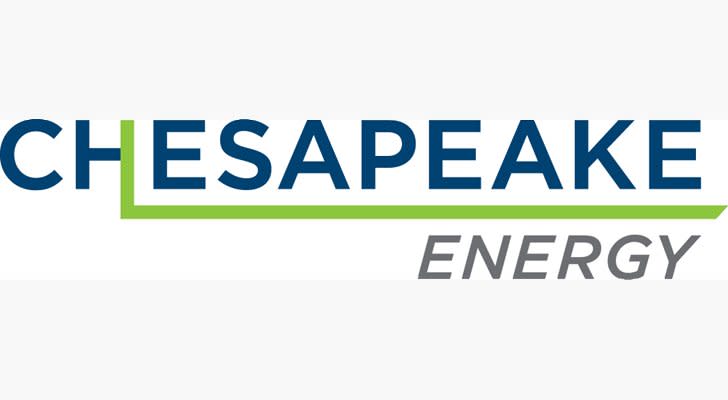A Serious Question: Why Would Anyone Buy Chesapeake Energy Stock?
InvestorPlace market strategist William Roth recently included Chesapeake Energy (NYSE:CHK) on a list of seven hot stocks under $4. Roth argued that CHK stock would run up to its 200-day moving average on the back of rising energy prices and an improved balance sheet.

Source: Chesapeake Energy
InvestorPlace - Stock Market News, Stock Advice & Trading Tips
CHK stock was good for a 10% bump, Roth stated on Mar. 11. As I write this column on Apr. 1, CHK stock is up 16% since Roth’s call. Nice one, William.
There’s nothing wrong with buying stocks under $3 per share, especially one that’s been struggling for a long time as Chesapeake Energy stock has. It’s bound to move higher at some point, the thinking goes.
But, frankly, unless you’re a short-term trader who specializes in low-priced stocks, I have no idea why you would want to own CHK stock when there are so many other names with far less baggage you could own.
My InvestorPlace Colleagues Love CHK Stock
In the past, I have recommended CHK stock, but only for aggressive investors or within an ETF, which I suggested last November.
“According to Finviz.com, 18 stocks are trading on NASDAQ or NYSE with a market cap greater than $2 billion and a share price of less than $4. I wouldn’t own any of them. Chesapeake included,” I wrote on Nov. 13.
“What I would do if you must own CHK stock is buy the Invesco WilderHill Progressive Energy ETF (NYSEARCA:PBW), which tracks the WilderHill Progressive Energy Index, a collection of 40 companies dedicated to improving the use of fossil fuels and nuclear energy.” I advised.
The ETF is up 18% since then, compared to an 11% decline of CHK stock.
I look at stocks in terms of their probability of moving higher. Sure, as my colleague James Brumley pointed out, Chesapeake’s got untapped potential, but unless risk is your favorite four-letter word, you have no business buying CHK stock.
“A quick review of its historical balance sheet data reveals its total liabilities of $12.8 billion is more or less in line with 2017’s final tally of $12.4 billion. Take a look further back in time though. As of 2014, when gas and crude prices were on the verge of collapse, that figure was a stunning $40.7 billion,” Brumley stated in a column published on Feb. 7.
He went on to state that CEO Doug Lawler’s rebuild of Chesapeake has been arguably the best in the energy business and that Chesapeake’s recovery is a matter of “when,” not “if.”
If you own CHK stock, you probably want to take that to the bank.
Indeed, CHK’s Q4 results show that Chesapeake’s business is getting stronger. Its earnings came in at 21 cents per share of CHK stock, four cents higher than analysts’ consensus outlook. CHK reported revenue of $1.7 billion, 70% higher than the consensus forecast, and the company’s oil equivalent realized price in the quarter was $29.64, 25% higher than a year earlier.
Thanks to the WildHorse acquisition, Chesapeake expects to produce as much as 122,000 barrels of oil per day in 2019, 50% higher than last year after adjusting for the company’s asset sales.
If oil prices keep moving higher, Brumley has reason to be confident about Chesapeake’s future and the outlook of Chesapeake Energy stock.
The Inevitable Downside
The press release announcing CHK’s Q4 results included a statement by Doug Lawler, its CEO, expressing optimism that it could deliver sustainable, positive free cash flow. He’s been saying that almost since the day he took the top job in 2013.
“At today’s strip pricing, we expect our cash flow to be meaningfully stronger in 2019, as we continue to leverage our strength in capital efficiency and cash cost leadership. Chesapeake’s progress, portfolio and strategic plan provides a compelling investment opportunity and we look forward to driving differential value for our shareholders in the year ahead,” the Feb. 27 statement by Lawler read.
Well, he sure better create sustainable free cash flow, because since his announcement as the new CEO in Jun .2013, CHK has lost 84% of its value, while Lawler’s made millions in pay and stock options. He’s got a vested interest in keeping the game going.
I will admit that since Lawler’s taken over, CHK’s negative-free cash flow was whittled from $3.0 billion to just $267 million in 2018. However, if you go back and look at a decade of Chesapeake’s 10-K’s, you’ll see that it’s never generated free cash flow.
So, the odds of it delivering sustainable free cash flow for more than a single fiscal year seem very low.
The Bottom Line on Chesapeake Energy Stock
Investing isn’t easy. If it was, we would all ditch our day jobs. That’s why I write about stocks and don’t manage billions of dollars of other people’s money.
Three years from now, I might be eating my words, but regular investors have no business owning stocks like CHK because they’re just so unpredictable.
There’s investing, and then there’s speculating. CHK is in the latter category, despite its improvements.
At the time of this writing Will Ashworth did not hold a position in any of the aforementioned securities.
More From InvestorPlace
The post A Serious Question: Why Would Anyone Buy Chesapeake Energy Stock? appeared first on InvestorPlace.
